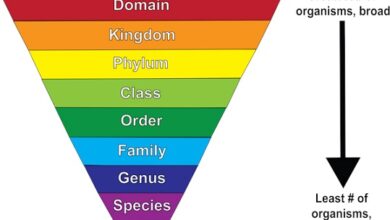What is Unconditional Love meaning and quotes
Unconditional Love
First of all, before knowing what unconditional love is, it is important to define another type of love: conditional love . It consists of a feeling and attachment towards someone that depends on certain behavior by that person. At its heart, we find the premise that the person who offers love (the lover) does so because he receives something in return, that is, it is a response from the person who receives the love (the beloved) that satisfies his expectations, many unrealistic times. More concretely, it is love that depends on the beloved not to act in a way that the lover finds unacceptable or intolerable.
Some of the characteristics are as follows:
- Purity: It is pure and, as it grows, the mind is freed from negative thoughts and renewed with positive thoughts.
- True: in conditional love, truth always comes first. This means that when we ask a question in unconditional love, the answer will be true. It may not be the answer you’d like to hear, but it’s actually the best one for you. Love never sugarcoats the message, but reveals what is helpful to you at that particular moment.
- Joy: usually, when there is unconditional love, the lover feels an optimal state of mind, regardless of conditions and circumstances.
- Acceptance: It is characterized by being accepted without conditions. He shows you how you really are, without judgment or condemnation.
- There are no expectations: although we place conditions on the relationships we form with each other, when there is unconditional love we are not subject to conditions.
- Self-Confidence: Love doesn’t expect you to be something you’re not. Unconditional love is confident and bold, and it gives you the freedom to be yourself. When you eliminate fear, confidence and boldness increase in your life. Fear is inhibiting, it makes you shy, but love gives you the freedom to lift your head with confidence and boldness.
- Security: As love increases, so does security, and the person no longer needs to be defensive. Love is kind and welcomes you with open arms.
Unconditional love: meaning
What is the true meaning of unconditional love ? According to the definition of unconditional love, it is an affection without limits, without expectations, that will never end, while love is “just” an intense feeling that has a beginning and an end.
Ideally, all kinds of love should be unconditional, but the world doesn’t work that way.
Does unconditional love really exist?
All love is unconditional at some point. This is particularly the case at the beginning of all relationships. It doesn’t matter if your new partner has done something wrong or has certain flaws, you only think about being with him or her.
When we fall in love with someone, we accept everything about that person and only see the good in them. We don’t want anything other than that person to be around us as much of the time as possible. As time passes, the feeling turns into something more disinterested and more conditional. You start to have expectations, and in that way, your perfect love starts to be conditional.
We must bear in mind that when we speak of conditional love, we are not only thinking about love relationships, but also family relationships, friendships, etc.
Famous quotes
These are some phrases of unconditional love:
- Love hard when there is love to receive. Perfect people don’t exist, but there’s always a perfect person for you. – Bob Marley
- Love doesn’t see with the eyes, but with the mind, that’s why it’s winged, it’s blind and so potent. – William Shakespeare
- When you look into your mother’s eyes, you know it’s the purest love you can find on this earth. – Mitch Albom
- To be brave is to love someone unconditionally, without expecting anything in return. – Madonna
- Once you learn to accept and love him for who he is, you subconsciously learn to love yourself unconditionally. – Yvonne Pierre
- You don’t love someone for their looks, or their clothes, or their fancy car, but because they sing a song that only you can hear. – Oscar Wilde
- If a dog feels unconditional love, why can’t we love each other the same way? – Carol McKibben
- I love you without knowing how, when, or where, I love you simply, without problems or pride. -Pablo Neruda


